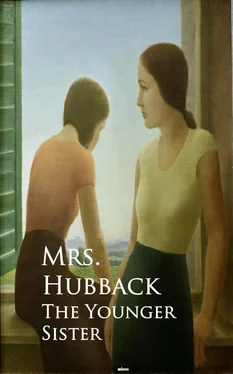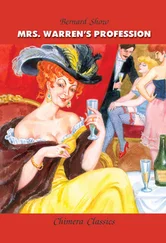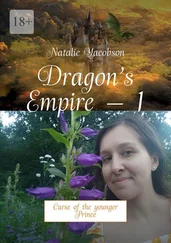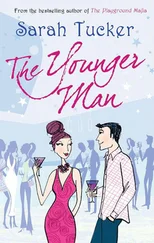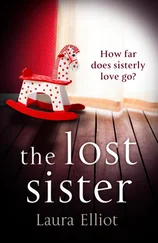Compared with this scene of strife, her father's company was perfect happiness, and she delighted in burying her own discomforts in a volume of Shakespeare, or Boswell's delightful reminiscences of his idol.
Yet Elizabeth seemed really to regret that the visit was so short, and tried, though vainly, to persuade both her brother and wife to prolong their stay.
Robert was determined to go on Saturday; and Jane, who knew it would be vain to oppose him, wisely took her part with a good grace, and resolved to make it appear to be her own free will likewise.
"It is not the slightest use to press me, Elizabeth," he said, with more truth than graciousness; "you know I can be a very determined character when I please. I flatter myself, I have as much firmness and decision of mind, as any woman in England. When I have taken a resolution, I
have
taken it."
"But why take this resolution, Jane; if Robert must go to business, why not stay here by yourself, and let us have a little time to enjoy your society."
"It is very strange," said the lady, affecting to laugh, and turning to Emma. "I always have such extreme difficulty in getting away from this sister of yours. Indeed, I may say the same of all, or most of my friends. 'My dear Mrs. Watson, do come!' writes one. 'My dearest friend, you must stay' cries another. I am positively torn to pieces between them all. My sweet friend Lady Browning was just the same when I was with her at Clifton—upon my word, it's quite distressing."
Emma was saved the trouble of answering by Elizabeth again interposing.
"You would have no trouble at all if you would only yield now—there is nothing to prevent you."
"My dear Elizabeth, you who are not a wife and a mother can little understand the feelings of one filling such a doubly responsible situation. I am absolutely dying to get back to my little darling Marianne."
"What a pity that you could not bring her," said Elizabeth; "but still, I dare say, she could do very well without you for a day or two more."
Before Mrs. Watson had time to answer, her husband returned to the parlour.
"I have been trying to persuade Jane to prolong her visit, Robert; I do so wish you could both remain."
"It's no use to bother, Elizabeth," replied he, roughly; "I cannot stay, and Jane shall not, and there's an end of it."
"Well, I can only say I am very sorry; I am sure we shall be dreadfully dull when you are gone."
Even this prospect caused no relenting in the heart of the obdurate Robert, who still persisted in his plan, perhaps, with the more zest because he delighted in tormenting both his wife and sisters.
"When shall you come and see us at Croydon, Elizabeth?" said her sister-in-law, after a short pause; "there are several things I want very much to show you. You should see the curtains—the new curtains in the drawing-room—they look so handsome—all my choice: it is not everybody who can choose curtains to advantage—requires great tact and judgment."
"It does not require any marvellous judgment to empty a husband's purse, guessing from the wonderful facility some ladies of my acquaintance display," growled Robert, from behind the Weekly London Newspaper, which his father took in second-hand. "Positively, this paper is a fortnight old: what a place—I saw it before I left Croydon—one might as well be buried alive!"
During this soliloquy, Elizabeth without listening in the least to her brother, was eagerly replying to Mrs. Robert's offer.
"You are extremely kind Jane, to give me such pleasure; you know there is nothing I should like better, but I must not think of it—indeed I must not. I do not think my father would like my leaving home whilst he is so ill. Margaret is so useless a housekeeper, and hates the trouble so much—and Emma being the youngest, perhaps it would not do: if Pen were at home, it would be different: she makes a capital housekeeper, and she amuses my father when he is well too—I think when Pen comes back, I think I might be tempted."
"I should think our house might offer a very pleasant change to any young lady shut up so much as you are in this miserable place. I am sure most of my friends are more anxious to stay than go."
"Oh, it is not that I doubt the pleasure," replied Elizabeth; "it would be a great treat to me, I am sure. But you must not be angry at my refusing now."
"Angry! I am not a person to be angry about trifles—it is not my way to fret or take on, I leave that for those who have no other way of showing their dignity but by growling at everything. People blessed with my birth and education need not resort to such pitiful means to look grand and important."
Emma sighed many times to see the temper of her brother so uncomfortably irritable, and grieved again and again in secret, over the destruction of some of her most fondly cherished hopes. All her life she had wished for fraternal affection; much as she had loved her uncle and aunt, she had always wished to know and love her brothers and sisters. The vain wishes she had expended on this subject now rose up to haunt her memory with the thought that she had been ungratefully slighting the good she had enjoyed, for the sake of unknown objects which still evaded her. True she was now acquainted with five members of her family; but of these how little there was to attach, in the three last met, she hardly liked to own even to herself. Robert was surly; Jane conceited, Margaret fretful—and all seemed self-occupied. She tried to check these thoughts, she was shocked at her own wickedness in conceiving such things, but the feeling was there, even when not clothed in words, and she could not eradicate it.
Elizabeth she dearly loved already, but from what she heard, she fancied Penelope would not be very agreeable—and her last hope was in Sam. If he would only love her—be a friend, a companion to her—she still flattered herself this was possible, for Elizabeth certainly seemed to like him, and one letter of his, which Emma had heard, gave her a favorable impression of his character. With the fond idea of being loved by one brother at least, at some future time, Emma saw her eldest brother and his wife depart without any of the regret which afflicted both her other sisters, having strong internal convictions that the house would be now more peaceable.
CHAPTER VI.
"What are you going to do this morning, Elizabeth?" inquired Margaret in a voice between langour and peevishness.
"Oh, I have a hundred things to do," cried Miss Watson, turning from the window where she had watched her brother and his wife drive off. "I must go and see about helping Nanny put away the best china and glass, and I must pin up the curtains, and put by all the things in the best bed-room—which were had out for Jane's use; and I want to try that receipt she gave me for a pudding for my father—and fifty other things beside."
"Then you will not think of walking, I presume; shall you Emma?"
"I am not sure," replied she, "is it not very dirty!"
"Good gracious, Emma!" cried Margaret sharply, "I hope you are not such a fine lady as to mind stepping out in a little mud, or what is to become of me—I cannot bear walking alone, and Elizabeth is sure to be busy when I want her company."
"Perhaps," said Emma gently, rather afraid of giving offence by suggesting so evident a duty, "if we were to help Elizabeth, she would have done in time to join you and enjoy the fine weather."
"I don't suppose she wants us a bit," cried Margaret again.
"Thank you, Emma," replied her eldest sister, without listening to Margaret, "but do not put off your walk on my account, I am used to these things, and mind the trouble no more than you do threading your needle, or finding your place in a book," and taking her key-basket from the table, she left the room.
Читать дальше
